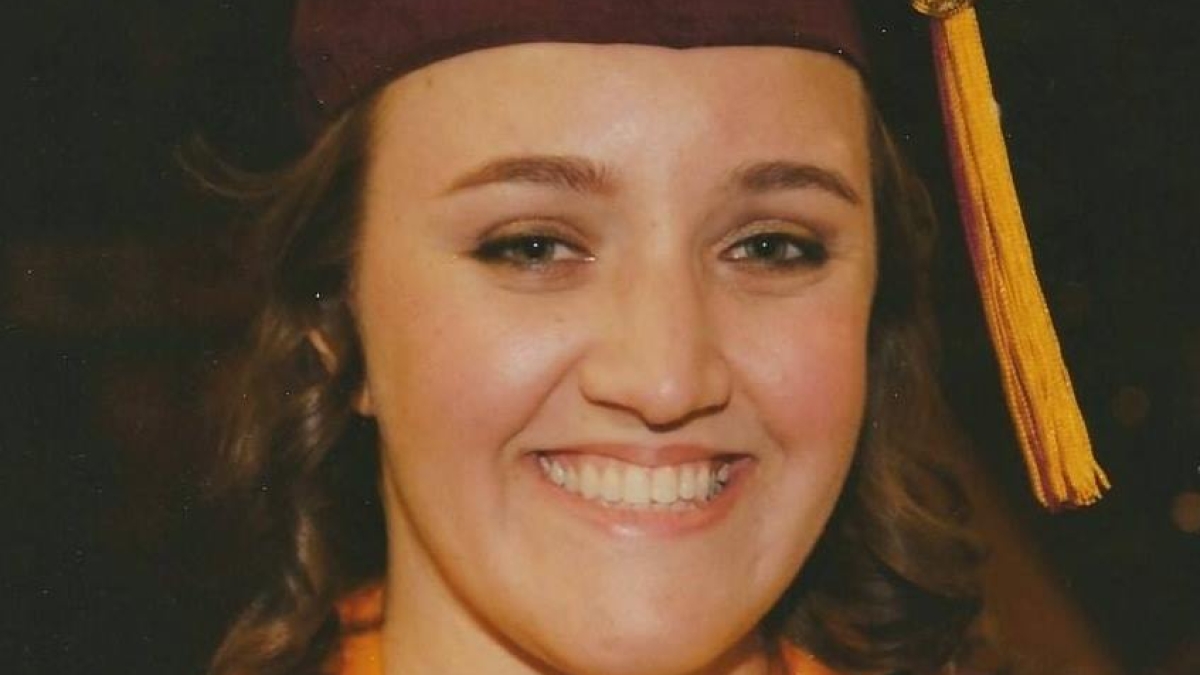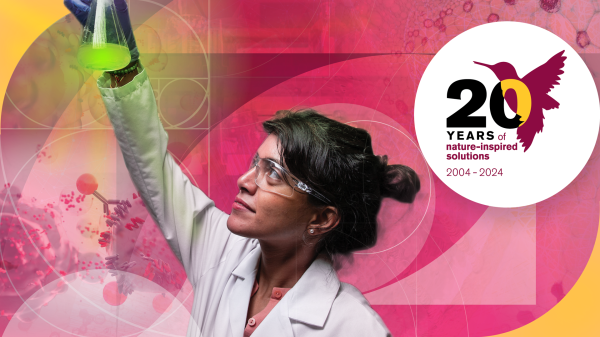ASU chemistry graduate teaches middle school students to think at the molecular level

Kaitlyn Mandigo graduated from ASU with a bachelor's degree in chemistry in 2016. She currently teaches sixth- and seventh-grade chemistry at BASIS Scottsdale.
Editor's note: This profile is part of a series showcasing alumni of the School of Molecular Sciences.
Kaitlyn Mandigo graduated from Arizona State University with a bachelor's degree in chemistry in 2016. While at ASU, Mandigo won the School of Molecular Sciences' Distinguished Teaching Assistant Award in spring 2016. She now is an active Cub Scout and choir mom to her two boys and teaches sixth- and seventh-grade chemistry at BASIS Scottsdale.
We asked Mandigo about her life and career in science education after graduation, and she revealed how studying chemistry at ASU helped create a solid foundation for her to become the dedicated chemistry teacher she is today.
Question: Why or how did you choose your current career path?
Answer: I chose to go into teaching because I really love chemistry, and I enjoy the challenge of inspiring that same love in others. I also had practical reasons to choose teaching, as it lends me the ability to have the same schedule as my children and is a career that fits well with my life.
Q: How did your undergraduate experience in the School of Molecular Sciences at ASU prepare you for your current career path?
A: As a student at ASU, I received a solid foundation in chemistry. This gave me the confidence I needed to get in front of class every day and relay that same information to my students. I was also a chemistry TA while I was at ASU, which gave me some insight into the world of teaching even while I was still a student myself.
Q: What is it like applying your degree in a new area?
A: I really enjoy teaching. The specific topic of chemistry is brand new to the kids I teach, and I love seeing their faces light up with knowledge about the world they live in. When you understand why things happen in the world, it's easier to figure out a better way to do something, and my students really like the idea of being able to change and improve things in their world.
Q: What are some of your favorite memories of ASU — academic, research or otherwise?
A: Being a TA was really instrumental to my life at ASU. Working with the professors and seeing a little bit of how teaching is done behind the scenes made my transition to teaching much easier. My college life was a little different from that of most of my classmates, in that I was a single mom of two. My college experience was all about working hard and finishing my coursework, and some of my professors were so amazing in helping me reach that goal. I will forever be grateful for the support and advice I received at ASU.
Q: What is your advice for current students in the School of Molecular Sciences who are thinking of pursuing a career path similar to yours?
A: First of all, no matter what your major is, get to know your professors! Professors are amazing people, and if you put in the effort, so will they. Specifically for science majors, get into a lab as soon as you can. Even if you don't plan on working in industry, taking the time for practical application of what you're learning in class is so helpful, both as a student and a prospective employee. If you want to be a teacher someday, definitely try to gain some experience as a TA. Being a TA won't give you the whole picture, but it definitely gives you enough to let you know if you're really interested in teaching, or will be any good at it.
Q: What would you tell a prospective ASU student that they need to know about studying in the School of Molecular Sciences at ASU?
A: Give yourself a break every now and then; it is not an easy path you've chosen, but it is a very rewarding one. Get to know your fellow classmates, and work together. School is so much easier with a support system that is right there with you.
More Science and technology

Hacking satellites to fix our oceans and shoot for the stars
By Preesha KumarFrom memory foam mattresses to the camera and GPS navigation on our phones, technology that was developed for…

ASU-led Southwest Advanced Prototyping Hub awarded $21.3M for 2nd year of funding for microelectronics projects
The Southwest Advanced Prototyping (SWAP) Hub, led by Arizona State University, has been awarded $21.3 million in Year 2 funding…

Celebrating '20 Years of Discovery' at the Biodesign Institute
Editor’s note: The Biodesign Institute at Arizona State University wraps up its 20th anniversary with the sixth and final…